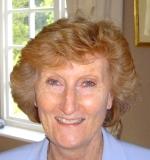Why I Chose to Work in the Field of Stratified Systems/Requisite Organisation
Speaker A I first came into, or first heard of Elliot's work and the work of the BIOS community when I was a mature student. So we'd been living in North America, we'd lived in two countries in Africa...
Transcript of the presentation video
NOTE: This transcript of the video was created by AI to enable Google's crawlers to search the video content. It may be expected to be only 96% accurate.
Speaker A I first came into, or first heard of Elliot's work and the work of the BIOS community when I was a mature student. So we'd been living in North America, we'd lived in two countries in Africa, had taken a sabbatical, come back to the UK with two small children and had taken time out to go back to university, or in my case, to go to university for the first time. And I went to Brunel and had problems covering my children for a biology no, for an evolution elective. And a girlfriend said, oh, I'm doing organisational behaviour, it's really interesting. So I switched electives and the elective on organisational behaviour was being run by BIOS, by the Brunell Institute, and had Elliot and Gillian and Ken Knight and Larry Phillips and Nikki Fonder and a group of them. And for me it was riveting, it was really fascinating because by that time I'd lived and worked in three or four different countries, experienced a lot of organizations who operated very dysfunctionally, and so for me it was a kind of, wow, this is great. This starts to explain why so many organizations and when I say the dysfunction, it's being on the receiving end of that dysfunctional behavior. I mean, I'm sure they were hugely successful and making pots of money, but for the people in them, they didn't feel as though they were particularly healthy places to be or that people were necessarily valued. And so when I graduated, I literally knocked on BIOS's door and said, I'm really interested in all of this work and I'm here. And so very much my involvement with BIOS has evolved since 1982. That time BIOS had quite a large practitioner group and they were a combination of consultants, mainly clients at that stage. And so my initial training I worked with Gillian, and it was much, I mean, we're much more structured now then it was more of an apprenticeship mode. So I'd sit with Jillian and do some interviews, or I'd go and practice and I'd go back and I'd discuss what I was doing. So it was a gradual development in the practice and then finding ways of introducing that thinking into work. That was quite early on was doing a fairly large piece of work with one of our major international banks on the evaluation of their junior, middle and senior managers and tried to get the company, who at that time I was working for on that project to start thinking about things in this way. Didn't have an awful lot of luck in doing that, but certainly it helped my thinking when we're talking about people having potential for senior roles, I don't think that you can base those comments just on the result of psychometrics. So I would introduce some of that more structured thinking into the interview processes I was doing.
Major organizations and consulting firms that provide Requisite Organization-based services





